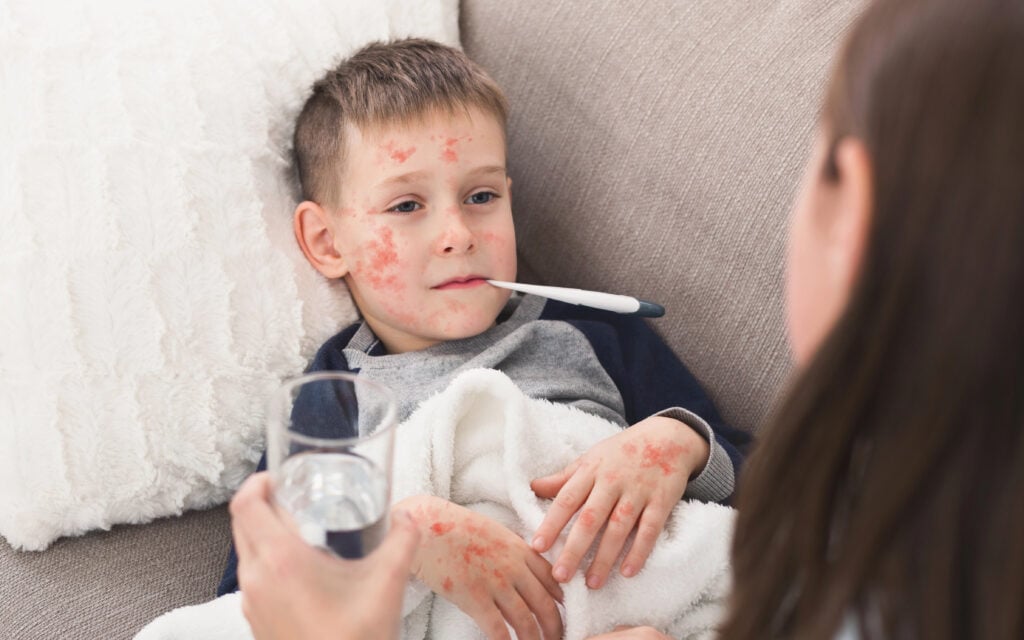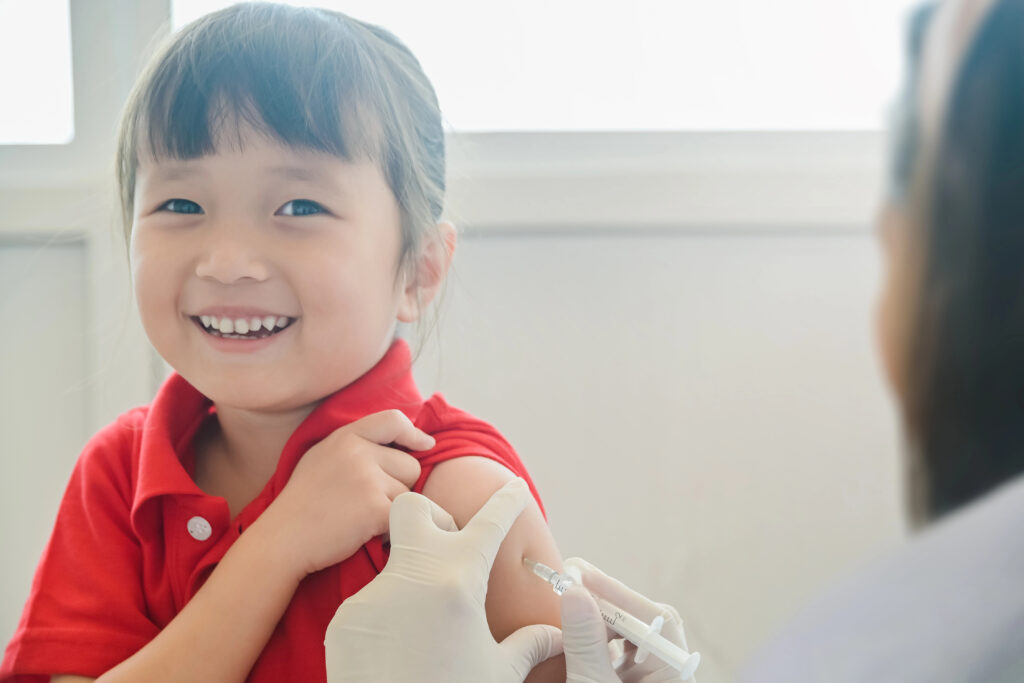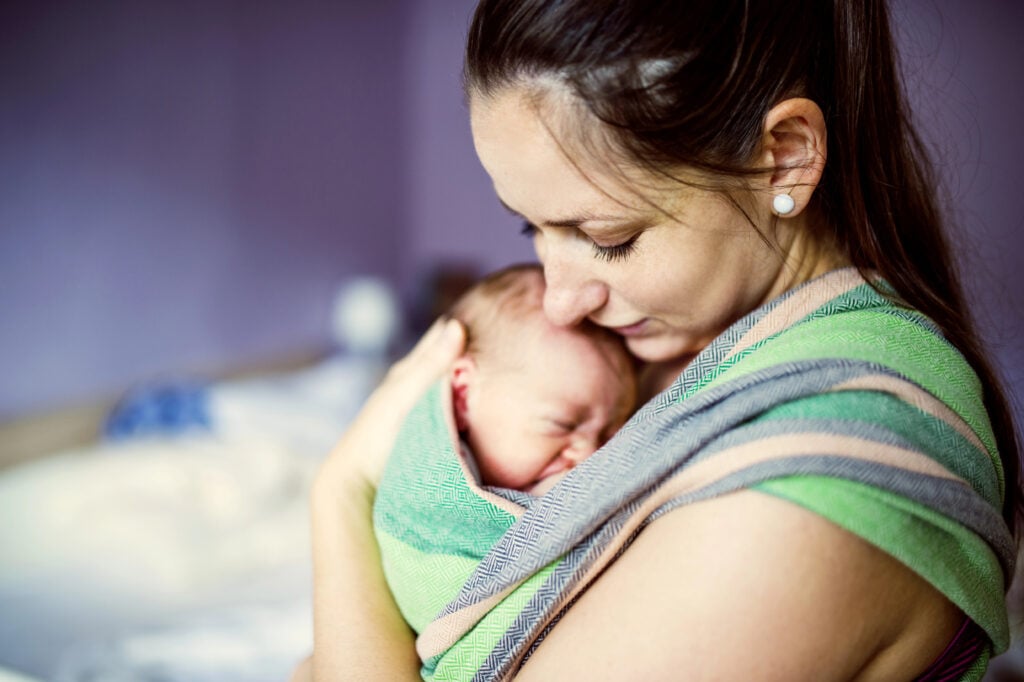
In the year 2000, measles was declared eradicated in the United States. By the time our kids are 6 years old, they’ve received two doses of the MMR (measles, mumps, rubella) vaccine and are considered fully vaccinated, with a 97% effectiveness rate.
Now, the public seems to have forgotten the lives lost to the viral disease before the vaccine was introduced, way back in the 1960s, and it’s making a comeback. There have been multiple outbreaks this year, and the United States has lost at least three children to measles and complications thereof.
The latest of those deaths was this week, in California, and reminds us how severe this very preventable virus still is.
No Child Deaths From Measles In A Decade

Three children dead from a preventable disease is a horrifying tragedy. However, the statistical severity isn’t immediately apparent until you realize that this has not been normal for a long time.
How far out of the norm is it, then?
According to the Infectious Diseases Society of America, there had not been a measles-related death in the United States since 2015.
The risk of complications is high, with about 3 in every 10 sufferers developing a complication, and it’s more severe in small children. Before there was a vaccine, measles killed around 500 people in the United States every year.
While some people experience complications from the vaccine, these are relatively rare, and severe cases are even rarer. According to Johns Hopkins, approximately 1 in 10 children may develop a mild fever or tenderness at the injection site.
The effects of a measles infection are far more devastating.
Three Deaths This Year As Outbreaks Continue
In Texas earlier this year, measles outbreaks hit unvaccinated and undervaccinated communities. A 6-year-old girl, Kayley Fehr, and an 8-year-old girl, Daisy Hildebrand, were both lost to the virus.
The Latin Times reports that both children were unvaccinated, and that the father of the 8-year-old doubled down, insisting that vaccinated relatives suffered much worse than his children.
Now there is a third death, this one in California, and the circumstances are slightly different.
This child, whose name has not been released, contracted measles years ago, before they were old enough to have their first dose of the vaccine. Around 1 in 600 children who contract measles at such an early age will develop a condition called subacute sclerosing panencephalitis (SSPE), according to NBC Los Angeles.
“The condition affects the central nervous system, so people may experience seizures or lose the ability to walk before falling into a coma or vegetative state. There is no known cure or effective treatment for the disorder, and most patients die within one to three years of diagnosis.”
Even children who survive an initial bout with measles can have long-term effects from the illness, and they can be deadly.
The Power Of Herd Immunity

The unnamed child in Los Angeles was too young to be vaccinated when they became ill. For children who are not old enough to be vaccinated, the only effective means of protection is avoiding exposure to the disease.
We protect infants from exposure in two ways.
The smallest babies, who have not yet developed a strong immune system, should be kept away from crowds as much as possible, and their exposure to strangers and people who are or have recently been sick should be limited.
Herd immunity protects everyone, but it is especially beneficial for individuals who cannot be vaccinated due to age, immune deficiency, or an allergy to a vaccine component. When everyone around your baby is vaccinated, the likelihood of your baby encountering the measles virus is vanishingly rare.
What Should Parents Do?
It’s true that vaccines can have complications and that not everyone can be vaccinated. However, a torrent of disinformation surrounds vaccine safety and efficacy.
Parents should discuss questions and concerns about vaccine safety with their pediatrician or another qualified professional. Please do not rely on internet forums or anecdotal claims by people you’ve never met to determine the safest health decisions for your child.
If your child has a different need, your pediatrician will work with you to create modified schedules, alternative plans, or skip vaccines that are not suitable for their needs. However, most children should be vaccinated against measles and other preventable diseases.
Measles is making a comeback in the United States, and it doesn’t have to.

